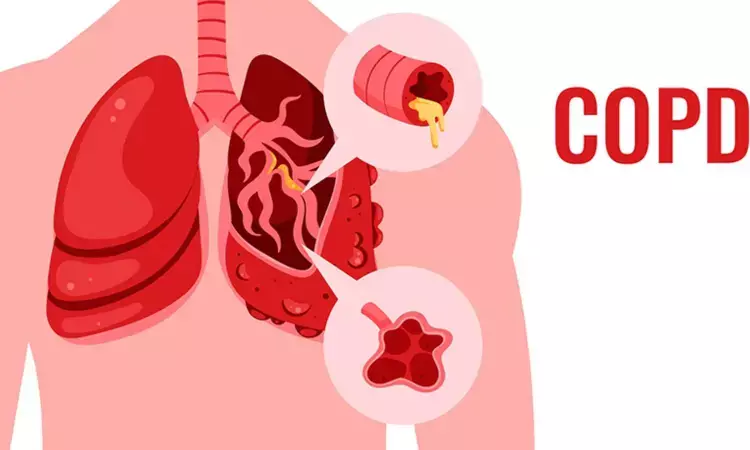- Home
- Medical news & Guidelines
- Anesthesiology
- Cardiology and CTVS
- Critical Care
- Dentistry
- Dermatology
- Diabetes and Endocrinology
- ENT
- Gastroenterology
- Medicine
- Nephrology
- Neurology
- Obstretics-Gynaecology
- Oncology
- Ophthalmology
- Orthopaedics
- Pediatrics-Neonatology
- Psychiatry
- Pulmonology
- Radiology
- Surgery
- Urology
- Laboratory Medicine
- Diet
- Nursing
- Paramedical
- Physiotherapy
- Health news
- Fact Check
- Bone Health Fact Check
- Brain Health Fact Check
- Cancer Related Fact Check
- Child Care Fact Check
- Dental and oral health fact check
- Diabetes and metabolic health fact check
- Diet and Nutrition Fact Check
- Eye and ENT Care Fact Check
- Fitness fact check
- Gut health fact check
- Heart health fact check
- Kidney health fact check
- Medical education fact check
- Men's health fact check
- Respiratory fact check
- Skin and hair care fact check
- Vaccine and Immunization fact check
- Women's health fact check
- AYUSH
- State News
- Andaman and Nicobar Islands
- Andhra Pradesh
- Arunachal Pradesh
- Assam
- Bihar
- Chandigarh
- Chattisgarh
- Dadra and Nagar Haveli
- Daman and Diu
- Delhi
- Goa
- Gujarat
- Haryana
- Himachal Pradesh
- Jammu & Kashmir
- Jharkhand
- Karnataka
- Kerala
- Ladakh
- Lakshadweep
- Madhya Pradesh
- Maharashtra
- Manipur
- Meghalaya
- Mizoram
- Nagaland
- Odisha
- Puducherry
- Punjab
- Rajasthan
- Sikkim
- Tamil Nadu
- Telangana
- Tripura
- Uttar Pradesh
- Uttrakhand
- West Bengal
- Medical Education
- Industry
Is blood eosinophil count better predictor of COPD exacerbation compared to exacerbation history?

A new study published in BMC Respiratory Research suggests that among patients with COPD, blood eosinophil count does not predict future exacerbations in the same way that exacerbation history does.
The ability of blood eosinophils to predict the effects of inhaled corticosteroids (ICS) on chronic obstructive lung disease (COPD) is of interest. The majority of the data come from interventional clinical research; however, information from randomly chosen real-world populations may aid to improve treatment choices.
DACCORD is a real-world, non-interventional research. Heinrich Worth and team conducted this study where patients with COPD who had been receiving triple treatment for less than six months were enrolled in Cohort 3. Patients were followed for a year after switching to a long-acting muscarinic antagonist/long-acting beta2-agonist (LABA/LAMA) or continuing triple therapy. Patients were separated into four groups for these post-hoc analyses based on their history of exacerbations and baseline blood eosinophil count (100 vs. > 300 cells/L). Exacerbation rates were determined for both treatments individually and as a whole.
The key findings of this study were:
The main groups of the 430 individuals included in the current analysis had modest exacerbation histories with high (44.2%) or low (36.7%) eosinophil counts.
The majority of patients (68.8% overall; 83.2% and 63.7% with LABA/LAMA and triple treatment) did not worsen throughout follow-up.
The greatest exacerbation rates were in groups with a high history of exacerbations, which substantially differed from groups with a low history of exacerbations (matched by eosinophil count) in the overall analysis.
Rates did not change when groups were made based on eosinophil count (matched by exacerbation history).
In conclusion, according to this study findings, although eosinophil count may serve to guide the start of inhaled corticosteroids (ICS) in COPD patients, it is less of a factor when switching from triple treatment to a LABA/LAMA.
Reference:
Worth, H., Buhl, R., Criée, C.-P., Kardos, P., Gückel, E., & Vogelmeier, C. F. (2023). In ‘real world’ patients with COPD, exacerbation history, and not blood eosinophils, is the most reliable predictor of future exacerbations. In Respiratory Research (Vol. 24, Issue 1). Springer Science and Business Media LLC. https://doi.org/10.1186/s12931-023-02311-x
Neuroscience Masters graduate
Jacinthlyn Sylvia, a Neuroscience Master's graduate from Chennai has worked extensively in deciphering the neurobiology of cognition and motor control in aging. She also has spread-out exposure to Neurosurgery from her Bachelor’s. She is currently involved in active Neuro-Oncology research. She is an upcoming neuroscientist with a fiery passion for writing. Her news cover at Medical Dialogues feature recent discoveries and updates from the healthcare and biomedical research fields. She can be reached at editorial@medicaldialogues.in
Dr Kamal Kant Kohli-MBBS, DTCD- a chest specialist with more than 30 years of practice and a flair for writing clinical articles, Dr Kamal Kant Kohli joined Medical Dialogues as a Chief Editor of Medical News. Besides writing articles, as an editor, he proofreads and verifies all the medical content published on Medical Dialogues including those coming from journals, studies,medical conferences,guidelines etc. Email: drkohli@medicaldialogues.in. Contact no. 011-43720751


